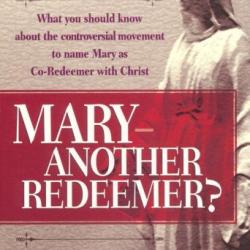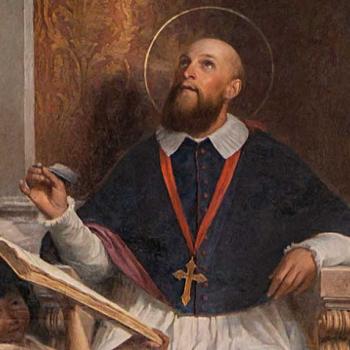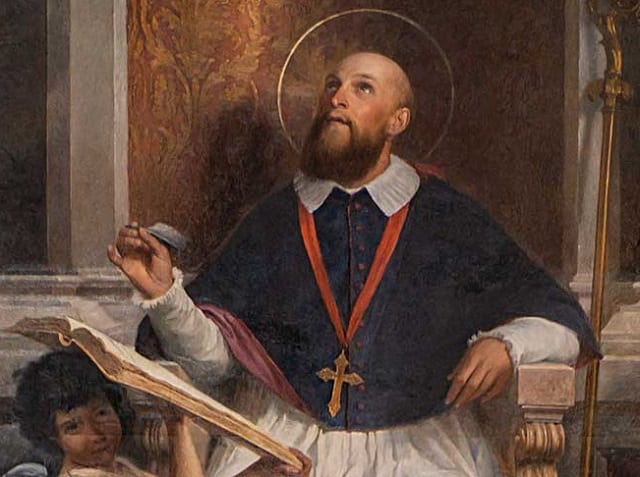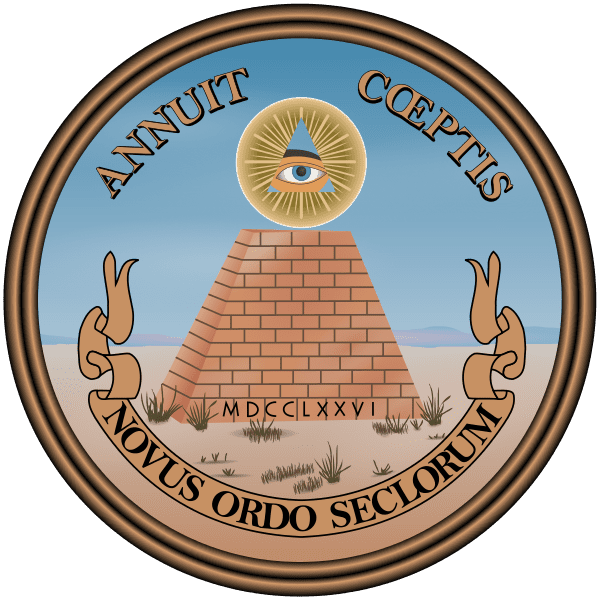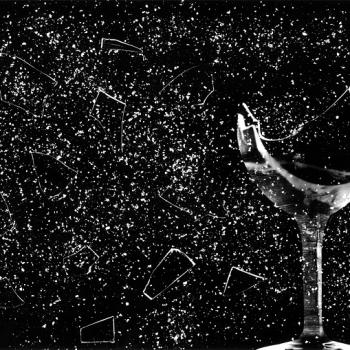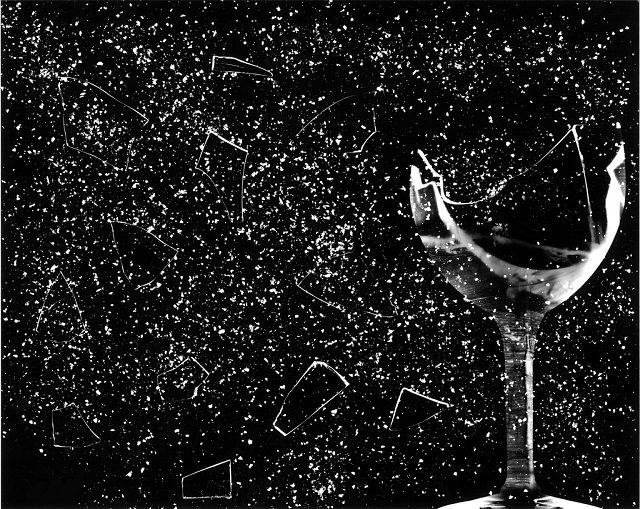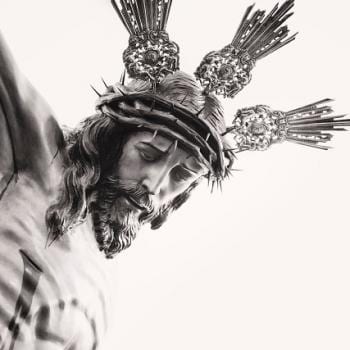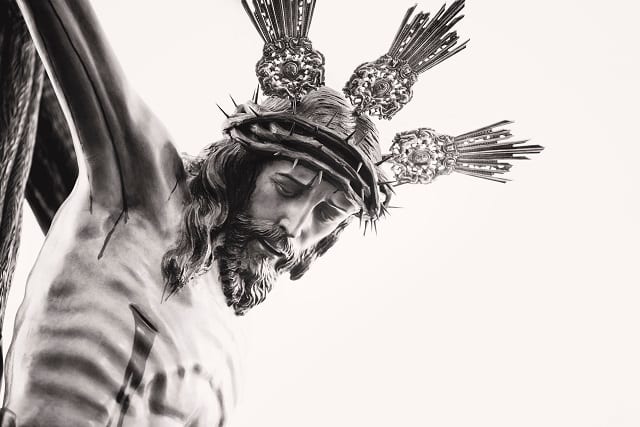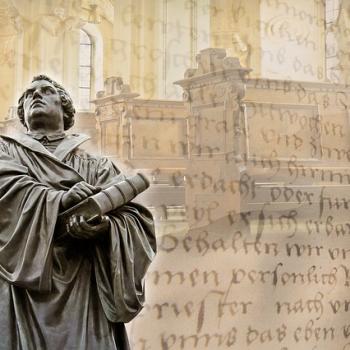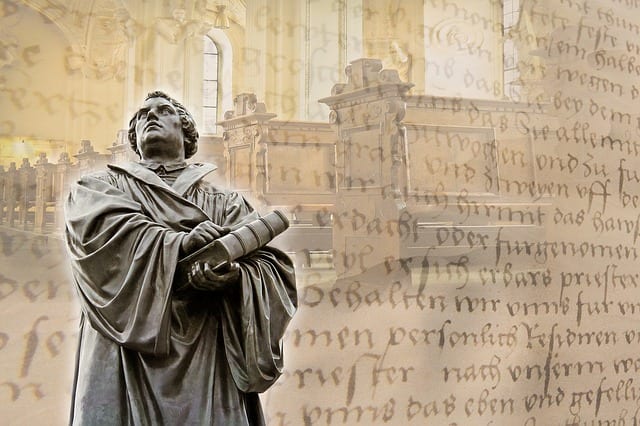Whitewashing History: By William Possidento and Dave Armstrong
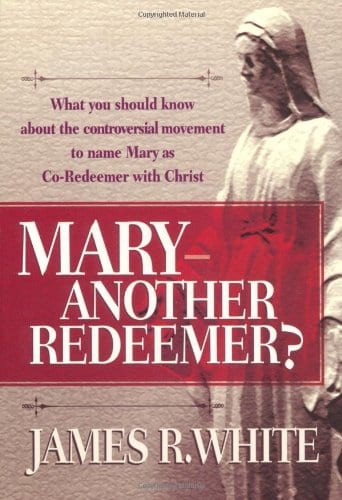
[originally posted on 3-12-04; slight revisions and revised links: 6-12-20]
***
James R. White
Mary — Another Redeemer?
Minneapolis: Bethany House, 1998.
Bishop “Dr.” [???] James White’s words will be in blue; William Possidento’s and mine will be in black. The beginning and ending sections (before and after the ten asterisks) are my own writing. My abridgment of Mr. Possidento’s review is in-between the two sets of ten asterisks. For source information, see the bibliography at the end. Authors and page numbers only will be cited in the text.
***
Before we begin, let’s look at a few semi-amusing comments made by Protestants about the alleged inability or unwillingness of Catholics to reply to this book. “Bonnie,” the wife of a Lutheran pastor (LCMS) and a moderator on the large CARM Catholic Discussion board, had this to say:
Mar-04-04 05:33 PM
#127536, “Hey, TertiumQuid!”A word with you, if you please. Remember my thread about books on the rise of Mariolatry? You said you had read them all, and critiqued them. I can’t remember, but did you say you read James White’s Book MARY-ANOTHER REDEEMER? If so, what did you think of it?
I checked Amazon, and it got bad ratings–from Catholics. They try to refute it, by quoting Bible verses taken out of context. They sound almost desperate. A non-Catholic reviewed it, quite dispassionately, and rightly said that Catholics aren’t going to like it, but doubted if any of them would be able to refute it.
“Tertium Quid” (James Swan), and also a moderator at CARM, responded:
Mar-04-04 08:47 PM
#127724, “RE: James White’s book on, POST edited per request of TQ”I have never read any substantial criticism of it. If any of our Catholic friends here at CARM have a specific complaint about the book, I’d be interested in hearing it . . . The problem is,our Catholic friends really really really really really really dislike James White.
I responded, “Really?” and determined that I would reply to this book after chapter four (about the Immaculate Conception) was posted on the CARM Catholic board. Likewise, Robin Savage’s review of the book on amazon.com (“A look into the ultra-Marian sect”— 8-30-03) exhibits the usual anti-Catholic deluded triumphalism:
James White is hated amongst Roman Catholics because of his extensive Protestant Apologetics ministry. All of his books have been spammed by RC’s because they do not like him . . . Lots of Roman Catholics have disdain for White’s opinions; but I truely [sic] wonder how many of them can refute him.
“A reader from Boston” chimes in with further sublime observations in his (her?) review, “The Mary of Roman Catholicism: Not the Mary of the Bible” (2-27-00):
If you are a Roman Catholic, you will not like this book. You will be critical of its contents and its author. After all, the Roman Catholic mantra is: We do not worship Mary. She is not Divine. But is this true?
Kerry Gilliard’s “Well Balanced and Written” (12-7-99) shows that he is a true White devotee, oblivious to the numerous shortcomings in his scholarship, as will be demonstrated below.
James White has always been an excellent author since I’ve been reading his work and this book is no exception . . . James White shows the origins of the doctrine, how several past Popes [and] church fathers have condemned the teaching as heretical and gives a proper biblical answer to the issue.
. . . Concerned Protestants and those Catholics who are concerned about truth should read this book . . . The level of scholarship in the book is second to none . . .
Another reviewer (11-5-98) claims that White “Documents the facts about Catholic beliefs extremely well”.
In doing some preliminary research for this paper I was excited to discover an extraordinary, copiously researched review of the book [link now defunct] by Catholic William Possidento (described as “81 pages” — and the most extensive critique of a particular example of White’s work that I have ever seen), which is no longer even online. But I found it anyway (!), by means of the Internet Archive (which allows access to older papers once on the Internet).
Rather than duplicate work which has already been accomplished more than ably and comprehensively by Mr. Possidento, I’ve decided to simply abridge his review, in order to make it more accessible to the average reader (not many will wade through an 81-page book review), and to concentrate mostly on the Immaculate Conception (and secondarily, on the doctrine of Mary Mediatrix. I have also concentrated on White’s historical arguments (rather than the biblical disputes). The many glaring errors, misrepresentations, and inadequately supported false assertions of Mr. White will be abundantly apparent, in reading this review.
I won’t be using ellipses throughout (. . .) — excepting citations within the review (they are presented in their entirety: any ellipses therein were in the original quotation). Again, this is an abridgment, and I have made format changes, such as indentation, moving of some material around, etc. Readers can consult the original at the above URL, linked above.
William Possidento’s review (especially in my abridgment) deals largely with factual errors and White’s misrepresentations of doctrinal history and development of doctrine. My portion will build a complementary argument from analogy, based upon White’s incessant use of double standards and his internal inconsistency: how he continually applies one standard to the Catholic Church and another to Protestantism (usually by ignoring the latter, so that no one will notice his clever “sleight-of-hand”).
He is very good at this sort of sophistry and selective (one might say, “cynical”) presentation of facts, but it horribly backfires on him, when he is confronted by someone who knows a bit more about comparative theology and Church history than the average reader of his papers and books. This is a classic example of his pseudo-scholarly methodology being relentlessly “exposed” for what it is. The results are (if I do say so) rather devastating with regard to Mr. White’s objectivity as a scholar and his seeming inability to grasp logical contradiction in his own positions. It is also a quintessential (sadly common) example of a profound anti-Catholic bias getting the better of a person who is otherwise is a fairly sharp and knowledgeable thinker.
Mr. White wrote on pp. 75-76 as follows:
In fact, not only is the idea of Mary as Coredemptrix or Mediatrix completely absent from the Bible and from the early Church, it does not have its origin in history but in this kind of piety or religious devotion that is focused upon Mary.
Mr. White eventually (p. 137) did report, the falsity of which I believe I will demonstrate, that:
[T]he push to define Mary as Coredemptrix flows out of the piety seen so plainly in Alphonsus Ligouri [sic] and Louis Marie Grignon de Montfort. It does not come to us from Scripture, nor does it come from history.
Mr. White, in denying the existence of such belief, even waxing emphatic with the words “completely absent”, will be shown to have steered his pilgrim readers into a slough of despond.
St. Irenaeus wrote, for example, of Christ as the pure one opening purely that pure womb which regenerates men unto God (Against Heresies IV,33,11) – words with which Irenaeus credited the Virgin’s womb and assigns to her a universal motherhood. Writing of the economy, that is, the plan of salvation, St. Irenaeus remarked …without Joseph’s action, Mary was the only one to cooperate in the economy… (Against Heresies III, 21,5,7 [quote from 7] in Miravalle, p. 178). Contemplate that. St. Irenaeus gave, with those words, a second century statement of belief that Mary had a unique role in the plan of salvation.
St. Irenaeus wrote of Mary c.190-200, in Proof of the Apostolic Preaching:
Adam had to be recapitulated in Christ, so that death might be swallowed up in immortality, and Eve [had to be recapitulated] in Mary, so that the Virgin, having become another virgin’s advocate, might destroy and abolish one virgin’s disobedience by the obedience of another virgin. (Proof of the Apostolic Preaching 33, Sources Chrétiennes 62 [Paris, 1941-], pp. 83-86, in Gambero, p. 54, brackets in Gambero, boldface mine)
Jaroslav Pelikan, (then) a Lutheran (he converted to the Orthodox Church in 1999), after quoting a slightly longer version of the passage immediately above from Proof of the Apostolic Preaching 33, wrote:
When it is suggested that for the development of the doctrine of Mary, such Christian writers as Irenaeus in a passage like this “are important witnesses for the state of the tradition in the late second century, if not earlier,” that raises the interesting question of whether Irenaeus had invented the concept of Mary as the Second Eve here or was drawing on a deposit of tradition that had come to him from “earlier.” It is difficult, in reading his Against Heresies and especially his Proof of the Apostolic Preaching, to avoid the impression that he cited the parallelism of Eve and Mary so matter-of-factly without arguing or having to defend the point because he could assume that his readers would willingly go along with it, or even that they were already familiar with it. One reason that this could be so might have been that, on this issue as on so many others, Irenaeus regarded himself as the guardian and the transmitter of a body of belief that had come to him from earlier generations, from the very apostles. A modern reader does need to consider the possibility, perhaps even to concede the possibility, that in so regarding himself Irenaeus may just have been right and that therefore it may already have become natural in the second half of the second century to look at Eve, the “mother of all living,” and Mary, the mother of Christ, together, understanding and interpreting each of the two most important women in human history on the basis of each other. With such moderns in mind, the parallelism was dramatically set forth by the German sculptor Toni Zanz in the metal door created in 1958 for the rebuilding of the Church of Sankt Alban in Cologne, which had been destroyed during World War II: in the lower left are Adam and Eve at the moment of the fall, in the upper right the Second Adam and the Second Eve at the moment of the crucifixion and redemption. (Pelikan, pp. 43-44, his italics)
[the citation from Pelikan by William Possidento had a typo: an added “not” which was pointed out and has now been removed. As the extraneous “not” weakened the case Pelikan was making — from a Catholic perspective — , clearly it was an inadvertent mistake, not a deliberate, dishonest addition]
Where is, and perhaps I mint a phrase here, at least with respect to capitalization, Mr. White’s anti-Irenicon? That is, where is his polemic against St. Irenaeus? More important, where is Mr. White’s anti-irenicon against the very early Church that did not rebuke St. Irenaeus but instead received and even recommended him as orthodox?
St. Irenaeus was not the earliest author to explicitly join a counterpart to St. Paul’s Adam-Christ parallel and antithesis: St. Justin Martyr was earlier and may have been the first writer to explicate the Eve-Mary parallel and antithesis, though it is strongly implicit in the Bible. His Dialogue with Trypho the Jew, c.155, preceded St. Irenaeus’s Against Heresies (180-199) and The Preaching of the Apostles (c.190-200) by several decades.
Christ became man by the virgin in order that the disobedience which proceeded from the serpent’s might receive its destruction in the same manner in which it derived its origin. For Eve, who was a virgin and undefiled, having conceived the word of the serpent, brought forth disobedience and death. But the Virgin Mary received faith and joy when the Angel Gabriel announced the good tidings to her, that the spirit of the Lord would come upon her, and the power of the highest would overshadow her; wherefore the Holy Thing begotten of her is the Son of God; and she replied, ‘Be it done unto me according to thy word’. And by her has he been born, to whom we have proved so many scriptures refer, and by whom God destroys both the serpent and those angels and men who are like him. (Dialogue with Trypho the Jew, in Quasten, Patrology, Vol. I, pp. 211-212, brackets mine)
Thus this very early martyr compared and contrasted Eve and Mary. According to St. Justin’s first sentence above, the redemption did not merely correct the fall but reversed, that is, recapitulated, it. I re-emphasize that St. Justin wrote the passage above about 155.
Tertullian was born in Carthage between 155-160. The following passage is from The Flesh of Christ, written between 208-212:
If, then, the first Adam was introduced in this way, all the more reason that the second Adam, as the apostle said, had to come forth from a virgin earth, that is, from a body not yet violated by generation, by God’s action, so that he might become the spirit who gives life. However, lest my introduction of Adam’s name appear meaningless, why did the apostle call Christ “Adam” (cf. 1 Cor 15:45), if his humanity did not have an earthly origin? But here, too, reason comes to our aid: through a contrary operation, God recovered his image and likeness, which had been stolen by the devil.
For just as the death-creating word of the devil had penetrated Eve, who was still a virgin, analogously the life-building Word of God had to enter into a Virgin, so that he who had fallen into perdition because of a woman might be led back to salvation by means of the same sex. Eve believed the serpent; Mary believed Gabriel. The fault that Eve introduced by believing, Mary, by believing, erased. (The Flesh of Christ, 17, 4-5, in Patrologiae cursus completus 2, 827-828, Series Latina [Paris: Migne, 1841-1864], in Gambero, p. 67)
Strong word erased. Some translations have blotted out in its place, another forcible expression. Observe that Tertullian also identified the idea of recapitulation. Cardinal Newman, in the nineteenth century, remarked that St. Justin, St. Irenaeus and Tertullian remind the reader of St. Paul’s antithetical sentences in tracing the analogy between Adam’s work and our Lord’s work (Newman, in Sr. E. Breen, ed., Mary-The Second Eve, p. 5). Not only do St. Justin, St. Irenaeus and Tertullian testify to the presence in the Church of the second and third centuries of belief of the Virgin Mary’s active role in the redemption, but in representing many localities in Asia, Europe and Africa, they also indicate the universality of that belief.
St. Ephrem (also spelled Ephraem) (c.306-373), wrote in Syrian of the Virgin Mary according to a prayer ascribed to him: After the Mediator thou art the mediatrix of the whole world (Oratio IV ad Deiparam, 4th Lesson of the Office of the Feast, in Ott, p. 211). In another prayer attributed to him, we read of Mary as the dispensatrix of all goods (in Most, p. 34). On the similarities and contrasts of Eve and Mary, he wrote: Mary and Eve, two people without guilt, two simple people, were identical. Later, however, one became the cause of our death, the other the cause of our life (Op. syr. II, 327, in Ott, p. 201).
St. Ambrose (c.337-397) viewed Mary’s role in redemption in the context of the Incarnation:
She was alone when the Holy Spirit came upon her and the power of the Most High overshadowed her. She was alone and she wrought the salvation of the world and conceived the redemption of all. (Ep. 49, 2, Patrologia Latina [Migne] 16, 1154, in O’Carroll, p. 20)
St. Augustine composed, from 391 until his death in 430, perhaps thousands of sermons. This one bore the idea of recapitulation:
Both the sexes should recognize their own dignity, and both should confess their sins and hope to be saved. Through woman, poison was poured upon man, in order to deceive him, but salvation was poured out upon man from a woman, that he might be reborn in grace. The woman, having become the Mother of Christ, will repair the sin she committed in deceiving the man. (Sermo, 51, 3; Patrologia Latina 38, 334-335, in Gambero, p. 230)
Each century of the first five testifies against Mr. White’s expansive claim and powerfully in favor of the Blessed Virgin Mary’s role as Co-Redeemer or Mediatrix. Mr. White also wrote (p. 142):
[A]nd any Mary who is said to be Coredemptrix on any level speaks with a voice that the sheep of Christ simply will not hear.
St. Augustine wrote:
Having excepted the Holy Virgin Mary, concerning whom, on account of the honor of the Lord I wish to have absolutely no question when treating of sins, – for how do we know what abundance of grace for the total overcoming of sin was conferred upon her who merited to conceive and bear Him in whom there was no sin? (Nature and Grace, 36,42, in Jurgens, III, p. 111).
Scholars agree that St. Augustine certainly believed in Mary’s exemption from personal sin. Some also see in this famous passage his belief in Mary’s exemption from original sin. Theirs may be a minority opinion among Augustinian scholars, but it would make St. Augustine a forerunner of God’s Immaculate Conception of Mary. Anyway, he did not teach very clearly against the Immaculate Conception. And did St. Augustine overlook the immaculate conceptions of Adam and Eve, as does Mr. White?
[T]he total overcoming of sin suggests that St. Augustine comprehended both original sin and personal sin in this passage. An extensive bibliography exists, however, on the controversy surrounding St. Augustine’s belief regarding the Immaculate Conception of Mary. Fr. Gambero in a footnote on this dispute cited only recent (since 1931) works, yet among them are documents in Latin, German, French, Spanish and Italian (Gambero, p. 226). These included, for just two examples, the following titles: La Controverse sur l’opinion de Saint Augustin touchant la conception de la Vierge (which I translate as The Controversy on the opinion of Saint Augustine concerning the conception of the Virgin) and Augustinus amicus an adversarius Immaculatae Conceptionis? (which I very roughly render as Augustine – friend or foe of the Immaculate Conception?). Despite this dispute, Mr. White wrote (p. 40) “Augustine had taught very clearly that only Christ was [immaculately] conceived….”
Note something else fascinating. Mr. White failed to explain both in his book and, despite the prompting I made in the review, in his rejoinder, what he implicitly claimed as a teaching of St. Augustine. Why did Mr. White decline to respond to my question about Adam and Eve? In asserting that St. Augustine taught that only Christ was immaculately conceived, Mr. White seems to have implied or assented to the implication that Adam and Eve were not immaculately conceived. Yet if Adam and Eve were not immaculately conceived, and here I refer to their passive conceptions, that is, the infusion of their souls into their bodies, then how did they fall from grace?
God did not create Adam and Eve with original sin. If He did, they would not be described, among other things, as having fallen. And if not fallen, then they and their descendants would have need for neither redemption nor a redeemer. Mr. White, in his zeal to sully the Catholic dogma of God’s Immaculate Conception of Mary, implicitly denied God’s immaculate conceptions of Adam and Eve, and thus carelessly painted Jesus as the Redeemer of no one, an enormous irony. Mr. White’s assertion that only Christ was immaculately conceived is thus reduced to an absurdity.
Mr. White identifies (pp. 40-42) [St.] Thomas Aquinas among many theologians who disbelieved in the Immaculate Conception. He neglects that Aquinas believed that original sin touched Mary only an instant, placing him extremely close to the belief, and that Aquinas believed in her personal sinlessness.
St. Thomas at first pronounced in favour of the doctrine in his treatise on the Sentences (in I. Sent. c. 44, q. I ad 3), yet in his Summa Theologica he concluded against it. Much discussion has arisen as to whether St. Thomas did or did not deny that the Blessed Virgin was immaculate at the instant of her animation, and learned books have been written to vindicate him from actually having drawn the negative conclusion. Yet it is hard to say that St. Thomas did not require an instant at least, after the animation of Mary, before her sanctification. (The Catholic Encyclopedia, Volume VII, Online Edition, 1999, under “Immaculate Conception”)
Aquinas accepted Mary as the Ark of the New Covenant, based on the close parallelism between the Visitation (Luke 1:39-56) and the transportation of the Ark (2 Samuel 6:1-14), and on the convergence of the Ark (Revelation 11:19) with the woman of Revelation 12. Mr. White omits that Aquinas believed in her Assumption, a belief that is particularly striking because it is usually a consequence of belief in the Immaculate Conception.
The Blessed John Duns Scotus (c.1266-1308) reconciled Mary’s purity with her need for redemption. Scotus enabled reclassification of the Virgin Mary apart from St. John the Baptist but with Adam, Eve and Jesus, all of whom were conceived immaculately. Scotus showed in 1300 how Mary could have a Savior yet always have been immune from the stain of original sin. Rather than purifying Mary of original sin, God preserved her from it with the most perfect, the most blessed redemption, a preventive redemption – the Immaculate Conception. Mr. White acknowledged the theoretical possibility of such an immunization (pp. 36-37). Although a few expressed otherwise, most of the Fathers believed in Mary’s personal sinlessness, that is, her freedom from actual sin.
I find the absence of actual sin in Mary at least as fascinating as her Immaculate Conception, that is, the absence in her of original sin. To me, Mary’s personal sinlessness seems impossible without her immunity from original sin. I realize, however, that Aquinas, for one, seems to have felt differently than I. Whatever Aquinas felt about Mary’s status regarding original sin, he believed that Mary was personally sinless.
Mr. White (p. 40) cited p. 203 of Dr. Ott’s Fundamentals of Catholic Dogma to remark that some of the individual Greek Fathers, including Origen, taught that Mary had venial personal faults. Mr. White neglected that in the very same paragraph he cited, Dr. Ott noted that Latin Patristic authors unanimously teach the doctrine of the sinlessness of Mary (Ott, p. 203).
Thomistic and Neo-Thomistic philosophers and Dominicans affirm that St. Thomas Aquinas would have assented to the dogma of the Immaculate Conception of Mary had he encountered Scotus’s preventive redemption solution. Their lives overlapped, but Scotus was about eight when Aquinas died. Dr. Pelikan noted that by the sixteenth century even the heirs of Aquinas resorted to Scotus’s explanation to substantiate the Immaculate Conception (Pelikan, p. 198). Aquinas’s view on the Immaculate Conception which emerged from the Summa Theologica, and not the view which he expressed in Sentences, differed from the Catholic Church’s dogmatic view by as little as an instant. But he lived before the definition of the dogma and no Catholic of his time was required to believe it.
Mr. White named St. Bernard of Clairvaux (pp. 41-42) as an opponent of the institution of the Feast of the Immaculate Conception [“Bernard of Clairvaux contended that she was conceived with original sin, but purified before birth”]. St. Bernard believed that the Blessed Virgin Mary was sanctified before her birth. But St. Bernard opposed the idea of a special conception of Mary according to which, he thought, Mary herself would have been conceived virginally. The Venerable [John Henry Cardinal] Newman noted that St. Bernard understood the doctrine of the Immaculate Conception with reference to Mary’s mother, whereas we understand it to refer to Mary. By ignoring the distinction between the active and passive conceptions in the thought of the great Cistercian abbot, Mr. White again misrepresented the teaching of a most influential Catholic.
Mr. White questioned on p. 41 when the idea of the Immaculate Conception first came into play. He then answered with a passage from p. 201 in Ott to indicate the beginning of the twelfth century. But Dr. Ott on that very page indicated that the Fathers, both Greek and Latin, implicitly taught the Immaculate Conception in two fundamental notions: 1) Mary’s most perfect purity and holiness; and 2) The similarity and contrast between Mary and Eve (Ott, p. 201).
Though Mr. White pointed to Dr. Ott’s Fundamentals of Catholic Dogma to report a twelfth century emergence of the idea, Dr. Ott quoted a fourth century passage of St. Ephrem to indicate belief in the Immaculate Conception in the patristic age (a passage I reported earlier). Around 370 in the Nisibene Hymns, Ephrem wrote: Thou and thy mother are the only ones who are totally beautiful in every respect; for in thee, O Lord, there is no spot, and in thy Mother no stain (Hymn 27, v. 8, in Ott). St. Ambrose was Bishop of Milan when between 387 and 388 he strikingly described Mary as a Virgin not only undefiled but a Virgin whom grace has made inviolate, free of every stain of sin (Jurgens, II, p. 166).
Separately I mention St. Sophronius (died 638), Patriarch of Jerusalem, one of the last of the Fathers and one of the greatest exponents of Mary’s primacy of excellence. He almost stated the Immaculate Conception in western terms:
Others before you have flourished with outstanding holiness. But to none as to you has the fullness of grace been given. None has been endowed with happiness as you, none adorned with holiness like yours, none brought to such great magnificence as yours; no one was ever possessed beforehand by purifying grace as were you . . . And this deservedly, for no one came as close to God as you did; no one was enriched with God’s gifts as you were; no one shared God’s grace as you did. (St. Sophronius, In SS Deip. Annunt. 22 Patrologia Latina 87c, 3248, in O’Carroll, p. 329, his italics and ellipsis)
Mr. White posed two questions on p. 38, the first of which was: “But why did it take more than 1,800 years to define this teaching as dogma, if, in fact, it is true?” Part of the answer consists in this: the Catholic Church did not rush to define it. Although the dogma of the Immaculate Conception was not proclaimed a revealed doctrine until 8 December 1854, the Immaculate Conception had been declared a pious doctrine in the fifteenth century, only 139 years after Scotus’s breakthrough. Mr. White did not inform his readers of the Council of Basel (Basle is an older name). Dr. Pelikan again:
The thirty-sixth session of the Council of Basel, on 18 December 1439, decreed that the immaculate conception was “a pious doctrine, in conformity with the worship of the church, the Catholic faith, right reason, and Holy Scripture.” It prescribed that the doctrine “be approved, held, and professed by all Catholics,” and it forbade any preaching or teaching contrary to it. That might have seemed to settle the matter, and was probably intended to do just that – except that by the time of this session Basel was itself under a cloud because of its statements and actions on the relation of the authority of the pope to that of a general council, which were subsequently condemned and which therefore made these later sessions of the Council of Basel invalid and not entitled to the designation of “ecumenical council.” Therefore the decree on the immaculate conception was not canonically binding. (Pelikan, p. 198)
According to Mr. White (p. 41), however, “S. Lewis Johnson summarized it well” (recall the discussions of Aquinas, Scotus and Bernard and read the next few paragraphs through the discussion of Trent and ask yourself just what Mr. White thought Dr. Johnson summarized well):
Anselm held that Mary was born with original sin. Bernard of Clairvaux contended that she was conceived with original sin, but purified before birth. Thomas Aquinas and the Dominicans held this view, but Duns Scotus popularized the view that Mary was conceived without original sin, and his view eventually prevailed, although Pope Sixtus VI in 1485 and the Council of Trent in 1546 left the issue of the Immaculate Conception unresolved. (S. Lewis Johnson, “Mary, the Saints, and Sacerdotalism” in John Armstrong, ed., Roman Catholicism: Evangelical Protestants Analyze What Divides and Unites Us, Chicago, Moody Press, 1994, p. 121, italics in original and White)
Several errors exist here. Mary-Another Redeemer? transmitted an error of Dr. Johnson and added one of its own: the Bishop of Rome in 1485 was not Pope Sixtus VI (read sixth) but Pope Innocent VIII (pope 1484-1492). Further, although there was a Pope Sixtus V (read fifth) (pope 1585-1590), there has not yet been a Pope Sixtus VI (read sixth) (no wonder he left the issue unresolved). Dr. Johnson had identified a Pope Sixtus IV (read fourth), but gave 1485 – he died in 1484 – as the year in which he left the issue unresolved. Mary-Another Redeemer? then misidentified Sixtus IV (read fourth) as Sixtus VI (sixth). Got that? But momentarily we shall see there is more as Pope Sixtus IV (pope 1471-1484) really did have considerable say about the Immaculate Conception. Note that the reversal of IV and VI does not adequately account for these mistakes as 1485 came one year after the end of the papacy of Pope Sixtus IV.
Moreover, Sixtus IV, a Franciscan, approved Offices and Masses in honor of the Immaculate Conception, and by the Constitution Grave nimis (1482), which he repeated in 1483, declared that the Holy Roman Church publicly and solemnly celebrates the feast of the Conception of the Immaculate and ever Virgin Mary (O’Carroll, p. 327). He also forbade charges of heresy, under the penalty of excommunication, against anyone on either side of the debate, for example, by the maculists against the immaculists, or by the immaculists against the maculists (ibid.). Thus Pope Sixtus IV resolved quite a lot.
Mr. White cannot dismiss these as mere typographic errors as he transmitted not only a mistaken date and a false name but also, more important, the wrong substance of the history. I have already discussed St. Bernard, St. Thomas Aquinas, the Dominicans and the Blessed John Duns Scotus. It is true that St. Anselm (1033-1109), the archbishop of Canterbury, believed Mary was born with original sin. But he, too, lived before Scotus’s insight and stated [i]t was fitting that this Virgin should shine with a purity than which under God no greater can be understood… (O’Carroll, p. 33).
Regarding the Council of Trent, directly concerning the Immaculate Conception, the most agreed upon was:
This holy Synod declares, nevertheless, that it is not its intention to include in this decree, where original sin is treated of, the blessed and immaculate Virgin Mary, Mother of God… (O’Carroll, Theotokos, p. 345)
Only a very few of the Fathers of the Council of Trent (1545-1563) opposed a decree that would have prohibited anyone from holding a position contrary to the doctrine of the Immaculate Conception, which had long been celebrated and honoured by a solemn rite in nearly all Churches. Perhaps I can speak of an entire council holding to inopportunism: the vast majority of the Council Fathers believed in the Immaculate Conception but thought a dogmatic definition should await a different moment.
The Council of Trent did affirm Mary’s personal sinlessness:
[If anyone holds] that throughout his whole life he can avoid all sins, even venial sins, except by a special privilege of God, as the Church holds in regard to the Blessed Virgin: let him be anathema. (Enchiridion Symbolorum, Denziger-Bannwart, ed. 33, A. Schonmetzer, S.J., 1573, in O’Carroll, p. 345, his brackets)
While assailing the flowery, poetic, expressions of Saint Alphonsus Liguori (1696-1787), Mr. White (I think it unlikely that an editor would have changed the proper spelling) misspelled the saint’s name, rendering it “Ligouri” throughout Mary-Another Redeemer? (for example, pp. 60, 61, 66, 71, 82, 87, 96, 109, 112, 128, 131, 134, 137, 154 and 156). Why did the misspelling elude the book’s editor? This is a small but fluorescent error highlighting Mr. White’s inattentiveness to detail.
Mr. White committed another error betraying his disregard for detail. In endnote 4 on p. 155, he (I think it doubtful that an editor would have corrupted the proper title) incorrectly identified a work (which I have cited frequently in this counter-reply) of Fr. O’Carroll as “Mariology: A Theological Encyclopedia of the Blessed Virgin Mary” whereas the correct title is Theotokos: A Theological Encyclopedia of the Blessed Virgin Mary. This is another small error, orders of magnitude smaller than the implicit claim that Adam and Eve were not immaculately conceived (again the reference is to their passive conceptions). Tiny, too, compared with the sweeping assertion about the complete absence from the Bible and the early Church of the idea of Mary as Co-Redeemer or Mediatrix.
As seen earlier – and although Mr. White reported the idea “completely absent” – St. Ephrem of Syria in the fourth century and Antipater of Bostra in the fifth, for two examples of early Churchmen noted for their orthodoxy, used Mediatress. Again, as noted earlier, St. Ephrem, in the fourth century, is also believed to have called Mary the dispensatrix of all goods; Theodotus of Ancyra in the first half of the fifth century called the Virgin Mary the dispensatrix of good things.
And replying to Catholic commentators that the Virgin Mary uniquely mediated between Jesus and mankind at the wedding at Cana (John 2:1-12), Mr. White objected (p. 103) that “[c]ertainly one searches in vain in the Scriptures or the early church for such an understanding of the text.” Oh? Observe that Mr. White not only denied such belief in the Scriptures or the early Church but again waxed emphatic with [c]ertainly. Mr. White went far beyond saying that some in the early Church testified against belief in Mary’s mediation at the wedding at Cana. Mr. White, instead, insisted upon the vanity of searching for belief in the Fathers that Mary mediated at the wedding.
I found the passage below of St. John Chrysostom, written c.391, that rebuts Mr. White’s vain statement:
Why then after He had said, Mine hour is not yet come, and given her a denial, did He what His mother desired? Chiefly it was, that they who opposed Him, and thought that He was subject to the hour, might have sufficient proof that He was subject to no hour; for had He been so, how could He, before the proper hour was come, have done what He did? And in the next place, He did it to honor His mother, that He might not seem entirely to contradict and shame her that bare Him in the presence of so many; and also, that He might not be thought to want power, for she brought the servants to Him. (St. John Chrysostom, Homilies on the Gospel According to St. John, Homily XXII)
Chrysostom wrote not only that Mary had desired the miracle from her Son, but also that she brought the servants to Him. Thus the golden mouthed saint indicated his belief that Mary not only prompted the miracle of her Son, but also mediated between the servants and her Son at the wedding.
Mary-Another Redeemer? is a pathetic survey, with gross errors in research and logic, of “Marian” teachings. I am hopeful that Mr. White will recognize and publicly acknowledge his many errors and very significant omissions, perhaps during his many presentations against Catholicism or his many debates against Catholic apologists, though some may find such hope ludicrous. Many non-Christians could summon themselves to express regret for their errors and omissions; perhaps Mr. White could find such redeeming qualities in himself.
Mary-Another Redeemer? was not so much written as it was filled in with a number two pencil so that the optical scanner (that is, the book’s reader) was programmed to accept as correct answers what the pencil-wielding Mr. White had already determined. We saw that St. Thomas Aquinas pronounced both for and against the Immaculate Conception (and perhaps for the doctrine again about one year before his death). Yet Mr. White asked only a true or false question, whether St. Thomas denied the Immaculate Conception, and would accept only the answer indicating St. Thomas’s denial of the doctrine.
In the case of St. Bernard and the Immaculate Conception, Mr. White posed the wrong question. Instead of asking if St. Bernard opposed belief in some kind of virginal conception by Mary’s mother, Mr. White asked if St. Bernard opposed the Immaculate Conception, and would accept only an answer in the affirmative. In the question of whether the idea of Mary as Coredemptrix or Mediatrix exists in the Bible or was held by the early Church, though the answer is overwhelmingly attested to, Mr. White, the test administrator cum test-taker on our behalf, filled in the wrong bubble. And so on. Mary-Another Redeemer? was not nearly so much written by an expositor of the truth as it was by an advocate of poorly informed and fiercely, even defiantly, maintained viewpoints.
Mr. White, in his rejoinder, misinformed his readers when he asserted that modern promoters of the possible dogma of Mary as Co-Redeemer do not even attempt to directly link the possible dogma to the passage from St. Irenaeus [“. . . even the promoters of the dogma do not attempt to make the direct connection of the passage of Irenaeus, so clearly is the idea of ‘co-redemptrix’ absent from any semi-unbiased reading of the text”].But Pope John Paul II, widely believed to be promoting the possible dogma, did see in those very words of Irenaeus a direct statement of Mary’s role as Co-Redeemer:
At the end of the second century, St. Irenaeus, a disciple of Polycarp, already pointed out Mary’s contribution to the work of salvation. He understood the value of Mary’s consent at the time of the Annunciation, recognizing in the Virgin of Nazareth’s obedience to and faith in the angel’s message the perfect antithesis of Eve’s disobedience and disbelief, with a beneficial effect on humanity’s destiny. In fact, just as Eve caused death, so Mary, with her “yes,” became “a cause of salvation” for herself and for all mankind (cf. Adv. Haer., III, 22, 4; SC 211, 441). (Pope John Paul II in L’Osservatore Romano, 26 October 1995, p. 4, in Miravalle, p. 129, italics in Miravalle but not in L’Osservatore Romano)
Regarding John 19:26-27, Mr. White, in an endnote on p. 155 about Mary as the “Mother of the Church,” remarked that the passage “in its original context, does not begin to suggest such a far-reaching concept.” Origen (c.185-253/254) and St. Ambrose (c.337-397), however, did so interpret the words of the dying Christ. In a commentary on John’s Gospel written starting in 226, Origen wrote:
The first-fruits of all the Scriptures are the Gospels, and the first-fruit of the Gospels is the Gospel that John has given us. No one can understand the meaning of this Gospel unless he has rested upon the breast of Jesus and from Jesus has received Mary as his mother. (Origen, In Johannis Evangelium, praef. 6; Patrologia Graeca 14:34ab, in Laurentin, pp. 72-73, italics mine)
St. Ambrose wrote:
May the Christ from the height of the cross say also to each of you: There is your mother. May he say also to the Church: There is your son. Then we will begin to be children of the Church when we see the Christ triumphant on the cross. (St. Ambrose, In Lucam VII, 5 (Patrologia Latina 15, 1787), in de la Potterie, p. 260, his italics)
Further, Mr. White failed to relate in his endnote (and I believe anywhere else except obliquely in endnote 3 on pp. 154-155 in the quotation from Irenaeus) that the Fathers emphasized the view of Mary as the New Eve.
If Mr. White argued in his rejoinder that, in the famously controverted passage from St. Augustine’s Nature and Grace, 36,42, Augustine meant that Mary was not immaculately conceived, that is, that she was tinged with original sin, then Mr. White’s argument is an example of ignoratio elenchi – arguing for one thing (that Augustine did not imply that Mary was immaculately conceived) as if it proved another (that Augustine implied that Mary was not immaculately conceived).
St. Augustine’s belief in the mode of the transmission of original sin has been long abandoned, but it did impede for centuries the development of the doctrine of the Immaculate Conception. His opinion on the Immaculate Conception, whatever it was, was based on this mistaken understanding. Thus his opinion on the Immaculate Conception is largely beside the point. Mr. White told nothing of this to his readers, however.
Mr. White left many indications that he himself had not understood St. Bernard’s concerns. Mr. White appears to have not availed himself of the many references that indicated that St. Bernard was opposed to the idea that Mary’s mother had a virginal conception of Mary but was unopposed to the idea of an immaculate infusion of Mary’s soul into the bodily matter formed from the sexual union of her parents.
Mr. White (p. 41) quoted Dr. Johnson to report that the Council of Trent in 1546 also left the issue of the Immaculate Conception unresolved. While it is true that the Council of Trent did not dogmatize the Immaculate Conception, Dr. Johnson and Mr. White omitted at least three significant points: i) the Council of Trent specifically exempted the Virgin Mary from its declarations on original sin; ii) the vast majority of the Council Fathers believed in the Immaculate Conception but thought a dogmatic definition inopportune, that is, that such definition should await a different moment; and iii) the Council of Trent affirmed Mary’s personal sinlessness.
Whether Mary gave birth to other children is an issue emblematic of Mr. White’s lopsided methodology. As a Reformed Baptist whose theology is under the sway of the Reformers in general and Jean Calvin in particular, Mr. White, who argued (pp. 29-34) that Mary gave birth to other children after Jesus, did not explain how his faith came to reverse the unanimous belief of Luther, Zwingli and Calvin, and the nearly unanimous teaching of the Church Fathers, regarding belief in Mary’s perpetual virginity. Yet Mr. White took pains, though not enough judging from the gaffes in his presentations, to contrast the teachings of St. Thomas Aquinas, St. Bernard and others with subsequent teachings of the Catholic Church. Mr. White did not examine his own teachings the way he scrutinized, albeit very sloppily, Catholic teachings.
White wrote, in his chapter four (where all the quotes in this section come from), devoted to the Immaculate Conception:
But just how serious this dogma is can be seen from what came immediately after the definition:
Hence, if anyone shall dare—which God forbid!—to think otherwise than as has been defined by us, let him know and understand that he is condemned by his own judgment; that he has suffered shipwreck in the faith; that he has separated from the unity of the Church; and that, furthermore, by his own action he incurs the penalties established by law if he should dare to express in words or writing or by any other outward means the errors he think in his heart.
Here, with infallible and binding authority, the Pope forbids anyone from even thinking otherwise than he has defined concerning the Immaculate Conception. If you are led to a different conclusion by the study of the Bible, or the study of history, you are to submit your mind and your heart to the ultimate authority of the Papacy, and reject even those conclusions derived from the Word itself.
Mr. White acts as if this were the most novel and outrageous thing in the world: to require some tenet of faith to be held by the faithful, as if Protestants don’t do this, too. Of course, they do (all the time). Passing over the multitude of statements from Luther and Calvin, anathematizing all who disagree (fellow Protestants and Catholics alike) with their own judgments (on entirely arbitrary grounds), we will examine a few of the Reformed creeds and confessions and discover that they take exactly the same stance. The good Calvinist has to submit his “mind and heart to the ultimate authority of the creeds and confessions of Calvinism.” I don’t see how this state of affairs is all that different, in terms of being bound to some authority which offers an interpretation of the Bible and Christian doctrine.
Mr. White is a Calvinist (Reformed Baptist). One of the classic expositions of Calvinism was that set out by the Synod of Dort (1618-1619). We find statements from that synod such as the following, directed towards those who don’t accept the five points of Calvinism, or “TULIP” (which acronym derives from this very synod):
T = Total Depravity
U = Unconditional Election
L = Limited Atonement
I = Irresistible Grace
P = Perseverance of the SaintsArticle 6: God’s Eternal Decision
The fact that some receive from God the gift of faith within time, and that others do not, stems from his eternal decision. For all his works are known to God from eternity (Acts 15:18; Eph. 1:11). In accordance with this decision he graciously softens the hearts, however hard, of his chosen ones and inclines them to believe, but by his just judgment he leaves in their wickedness and hardness of heart those who have not been chosen . . . This is the well-known decision of election and reprobation revealed in God’s Word. This decision the wicked, impure, and unstable distort to their own ruin, . . .
In it’s “Conclusion: Rejection of False Accusations,” the Synod declares, against Protestant Arminian Christians:
. . . the Synod earnestly warns the false accusers themselves to consider how heavy a judgment of God awaits those who give false testimony against so many churches and their confessions, trouble the consciences of the weak, and seek to prejudice the minds of many against the fellowship of true believers.
Note that this is entirely a dispute amongst Protestants. The great majority of Protestants today are Arminian, not Calvinist. They are all condemned by the rhetoric at Dort, and essentially read out of the Christian faith. I have dealt with this inconsistency and hidden assumption in Mr. White’s work in great detail, and shown how — by his own stated assumptions — people like Martin Luther, C. S. Lewis, and John Wesley were not, and could not be Christians. That is what his logic entails. Catholics, of course, do not deny that Protestants are Christians, or that they can be saved.
So Catholic dogmatic authority asserts that a person who rejects the Immaculate Conception has been “condemned by his own judgment” and has “suffered shipwreck in the faith.” Calvinist dogmatic authority asserts that people who reject predestination to hell of the reprobate and other tenets of five-point Calvinism (which multiple millions of Protestants reject — including even Martin Luther himself), are “wicked, impure, and unstable” and do so “to their own ruin.” They are “false accusers” who will be subject to a “heavy judgment of God” if they continue in their ways. What’s the difference? In both cases, a teaching which is disagreed with by many many different kinds of Christians is made obligatory on followers of the professed faith, under penalty of the shipwreck of their faith or souls.
That’s not all. We have the habitual “anathematizing” treatment of the Catholic Church in other Protestant creeds and confessions, reading those who adhere to its doctrine out of the faith. For example, the Westminster Confession of 1646:
CHAPTER XXV. Of the Church
VI. There is no other head of the Church but the Lord Jesus Christ: nor can the Pope of Rome in any sense be head thereof; but is that Antichrist, that man of sin and son of perdition, that exalteth himself in the Church against Christ, and all that is called God.
Likewise, the Second Helvetic Confession (1566):
CHAPTER XVII Of The Catholic and Holy Church of God,
and of The One Only Head of The Church. . . The Roman head does indeed preserve his tyranny and the corruption that has been brought into the Church, and meanwhile he hinders, resists, and with all the strength he can muster cuts off the proper reformation of the Church.
And the Belgic Confession (1561):
Article 29: The Marks of the True Church
. . . As for the false church, it assigns more authority to itself and its ordinances than to the Word of God; it does not want to subject itself to the yoke of Christ; it does not administer the sacraments as Christ commanded in his Word; it rather adds to them or subtracts from them as it pleases; it bases itself on men, more than on Jesus Christ; it persecutes those who live holy lives according to the Word of God and who rebuke it for its faults, greed, and idolatry. These two churches are easy to recognize and thus to distinguish from each other.
So how are these two stances all that different, authority-wise? The Catholic position was that if someone didn’t follow the pope’s teaching with regard to the Immaculate Conception, they were in big spiritual trouble. The anti-Catholic Calvinist position (thankfully, not all Calvinists are anti-Catholic, by any means) is that if someone follows any of the pope’s teachings, or those of the Catholic Church, he is following antichrist, a man who “hinders” and “resists” all proper reformation of the Church, denigrating the Bible, not subjecting himself to Christ, follows men more than Christ, is an idolater, etc.
If he doesn’t accept a doctrine like double predestination (where the damned, or reprobate, never had any choice but to be damned from eternity), he is “wicked” and “impure” and under a heavy “judgment of God.” How is one worse than the other? But of course Mr. White will never point this out. His goal is to make the Catholic Church look utterly unreasonable, arrogant, and outrageous, while the Protestant sects who make exactly the same kind of statements — about doctrines which are highly-controversial — get a pass.
Coming up to our present time, and the ecumenical joint statement, Evangelicals and Catholics Together(ECT), we again find a vigorous anti-Catholic opposition. For example, prominent anti-Catholic Michael Horton (chairman of the Council of the Alliance of Confessing Evangelicals, and associate professor of historical theology at Westminster Theological Seminary in California), in his critical review of ECT [link defunct], writes (and surely Mr. White would agree):
If Rome continues to uphold the Decrees and Canons of the Council of Trent, all individual members of that body who follow those decrees (which, in Roman Catholic ecclesiology must include every faithful son or daughter) continue to stand in opposition to the unchanging Gospel of Christ. If they stray from the official teaching of Rome, either from ignorance or in opposition to those statements, they may be regarded as brothers and sisters in Christ.
. . . the Roman See persists in its denial of the message that makes the church’s existence both possible and necessary.
. . . We deny that this catholic consensus is sufficient for recognizing the Roman church as a true visible expression of Christ’s body.
. . . We affirm that individual Roman Catholics, who for various reasons do not self-consciously give their assent to the precise definitions of the Roman Magisterium regarding justification, the sole mediation of Christ, the monergistic character of the new birth, and similar evangelical issues, are our brothers and sisters despite Rome’s official position.
[again, this is the condescending notion that a Catholic has to be a lousy, disobedient, dissenting Catholic in order to be a Christian]
Mr. James White makes many similar utterances, too numerous to recount. Here is one of the more striking ones:
The issue isn’t the Pope, the issue is the system he represents. The question, at the bottom of the issue, is, “Does Rome promote, or stand against, Christ’s work in this world?” The answer, in light of the “gospel” taught by Rome, is clear in my mind: she stands against the work of Christ. Hence, if we wish to use the term “antichrist,” it is the system that partakes of that spirit due to her opposition to the free grace of Christ. (statement on his own sola Scriptura Internet list: 8-16-96)
Now, again, I ask: why is it unacceptable for the Catholic Church to require its members to believe in the Immaculate Conception (where other Christians vigorously disagree), and give stern warnings for failure to do so, but it is perfectly acceptable for anti-Catholic to make far more extreme statements denigrating the Catholic Church altogether and some one billion Catholics? In each case, others who disagree and the relative state of their souls or “correct belief” are discussed, but the anti-Catholic statements are infinitely more sweeping and condescending. Therefore, what Mr. White proves, when this further relevant examination is brought to the table, is the existence of his own glaring double standards (as so often in his anti-Catholic polemics). His rhetoric backfires on him.
This double standard and historical / theological obfuscation is continued by Mr. White when he states:
But why did it take more than 1,800 years to define this teaching as dogma, if, in fact, it is true?
The doctrine developed, just as all doctrines do. This was shown in William Possidento’s review. In this way, it is little different from all other doctrines. It just developed a bit more slowly. Its essence — Mary’s sinlessness –, appeared very early on and became the consensus of the Fathers. That’s much more than can be said for many doctrines that Mr. White accepts (and here we are deep into “double standard” ground once again). White’s lack of consistency and historical fairness and objectivity can be analyzed on many levels:
1. With regard to doctrines that are utterly unknown in Scripture, and which required nearly four centuries to be resolved by the Church and Tradition (canon of Scripture: finalized in 397)
2. With regard to doctrines which Protestants and Catholics both accept, but which took many centuries (often four or more) to develop fully (the Two Natures of Christ and fine points of trinitarianism — Chalcedon in 451, original sin).
3. With regard to doctrines which were virtually nonexistent throughout all previous Christian history, but nevertheless were adopted (as novelties, or corruptions) by early Protestants as not only dogma, but indeed, “pillars” of their faith, and the basis upon much Protestant theology and epistemology is based (sola fide — including the notion of imputed or extrinsic justification — and sola Scriptura).
4. With regard to doctrines that developed very rapidly and were virtually unanimous in the Fathers, which were retained by some early Protestants (Luther) but rejected by others, such as Calvin and Zwingli (real presence in the Eucharist, baptismal regeneration).
5. With regard to doctrines that developed rapidly and were retained by all the Protestant “Reformers” but denied by most Protestants today (perpetual virginity of Mary).
6. With regard to doctrines that developed slowly and were retained by some Protestant “Reformers” but denied by virtually all Protestants today (Immaculate Conception, which Luther accepted, and the Assumption, which Bullinger accepted).
All of these factors embroil Mr. White in internal incoherence, inconsistency, and self-contradiction, insofar as he wishes to talk about the alleged outrageousness of a development taking 1800 years, while ignoring all these anomalies in the Protestant position(s), historically considered, and treated in the same fashion as White treats Catholicism. I shall explain each very briefly (as I have written about all of these things elsewhere):
The doctrinal development of Christology and trinitarianism is well-known, and not a matter of controversy, so I will pass over that for the sake of space. The history of the doctrine of original sin, however, is much less well-known. John Henry Cardinal Newman noted that the doctrine of original sin had far less warrant in the Fathers than purgatory did. I wrote in a paper about development of doctrine:
[Newman] Some notion of suffering, or disadvantage, or punishment after this life, in the case of the faithful departed, or other vague forms of the doctrine of Purgatory, has in its favour almost a consensus of the first four ages of the Church.
Newman then recounts no less than sixteen Fathers who hold the view in some form. But in comparing this consensus to the doctrine of original sin, we find a disjunction:
No one will say that there is a testimony of the Fathers, equally strong, for the doctrine of Original Sin.
In spite of the forcible teaching of St. Paul on the subject, the doctrine of Original Sin appears neither in the Apostles’ nor the Nicene Creed.
(Newman, 21-23)
This is a crucial distinction. It is a serious problem for Protestantism that it by and large inconsistently rejects doctrines which have a consensus in the early Church, such as purgatory, the (still developing) papacy, bishops, the Real Presence, regenerative infant baptism, apostolic succession, and intercession of the saints, while accepting others with far less explicit early sanction, such as original sin.
2. The utter absence of the two Protestant “pillars”: sola fide and sola Scriptura, prior to the 16th century, seems not to trouble Mr. White at all (all the while, he complains against the “late” arrival of the Immaculate Conception). Respected Anglican scholar and Church historian Alister McGrath holds that imputed justification (a bedrock Reformed doctrine) indeed began with Martin Luther. He calls it a “theological novum” and states that it “marks a complete break with the tradition up to this point” and that the Protestants had introduced a “notional distinction” between justification and sanctification which was brand new (see McGrath, II, 2 ff., cf. I, 182 ff.).
Protestant apologist Norman Geisler concurs with this general historical judgment:
. . . these valuable insights into the doctrine of justification had been largely lost throughout much of Christian history, and it was the Reformers who recovered this biblical truth . . .
During the patristic, and especially the later medieval periods, forensic justification was largely lost . . .
. . . one can be saved without believing that imputed righteousness (or forensic justification) is an essential part of the true gospel. Otherwise, few people were saved between the time of the apostle Paul and the Reformation, since scarcely anyone taught imputed righteousness (or forensic justification) during that period! (Geisler and Mackenzie, 247-248, 503)
The newness of the sola Scriptura is very well-known. Statements of reputable Protestant historians which deny an understanding of sola Scriptura in the Fathers are numerous. For example, patristics expert J. N. D. Kelly:
It should be unnecessary to accumulate further evidence. Throughout the whole period Scripture and tradition ranked as complementary authorities, media different in form but coincident in content. To inquire which counted as superior or more ultimate is to pose the question in misleading terms. If Scripture was abundantly sufficient in principle, tradition was recognized as the surest clue to its interpretation, for in tradition the Church retained, as a legacy from the apostles which was embedded in all the organs of her institutional life, an unerring grasp of the real purport and meaning of the revelation to which Scripture and tradition alike bore witness. (Kelly, 47-48)
3. As for the real presence in the Eucharist and baptismal regeneration, both doctrines which were virtually unanimously held by the Fathers, and by Martin Luther, but rejected by John Calvin and James White, the scholarly consensus is equally clear:
The doctrine of the sacrament of the Eucharist was not a subject of theological controversy . . . . till the time of Paschasius Radbert, in the ninth century . . .
In general, this period, . . . was already very strongly inclined toward the doctrine of transubstantiation, and toward the Greek and Roman sacrifice of the mass, which are inseparable in so far as a real sacrifice requires the real presence of the victim. (Schaff, III, 492, 500)
For further documentation, see: Patristic Eucharistic Doctrine: Nine Protestant Scholars.
J. N. D. Kelly wrote about the view on baptism in the Church in the first two centuries:
It was always held to convey the remission of sins . . . the theory that it mediated the Holy Spirit was fairly general . . . The early view, therefore, like the Pauline, would seem to be that baptism itself is the vehicle for conveying the Spirit to believers; in all this period we nowhere come across any clear pointers to the existence of a separate rite, such as unction or the laying on of hands, appropriated to this purpose. (Kelly, 194-195)
4. The first Protestant leaders and forerunners of the movement (aka “Reformers”) unanimously held to the perpetual virginity of Mary.
5. Martin Luther believed in the Immaculate Conception in a slightly revised form. This is the opinion of many Protestant and Lutheran scholars, including contributors to the 55-volume set of Luther’s Works.
Heinrich Bullinger (1504-1575), successor to Zwingli and author of the Second Helvetic Confession, wrote:
Elijah was transported body and soul in a chariot of fire; he was not buried in any Church bearing his name, but mounted up to heaven, so that . . .we might know what immortality and recompense God prepares for his faithful prophets and for his most outstanding and incomparable creatures . . . It is for this reason, we believe, that the pure and immaculate embodiment of the Mother of God, the Virgin Mary, the Temple of the Holy Spirit, that is to say her saintly body, was carried up to heaven by the angels. (De origine erroris, 16, written in 1568; in Thurian, 197-198)
Zurich during Zwingli’s tenure continued to observe the Feast of the Assumption on August 15th (Acts of the Council in March 1526 and March 1530; see Thurian, 186). So this belief was not unknown in early Protestantism, either. Luther still accepted it in a non-dogmatic fashion, as late as 15 August 1522 (on which date he preached a sermon about Mary’s Assumption), but later seems to have discarded belief in it. The point is that many early Protestants accepted Marian beliefs which Mr. White cavalierly assumes are completely unbiblical and even absent in history.
White asks in his book, concerning the Immaculate Conception:
Is there anything in Scripture that even remotely suggests this concept?
Well, yes, there is more evidence than there is for the canon of Scripture (absolutely none) — which all Protestants accept — and for sola Scriptura (arguably none at all). I’ve offered plenty of biblical support:
Blessed Virgin Mary & God’s Special Presence in Scripture [1994; from first draft of A Biblical Defense of Catholicism]
“All Have Sinned” vs. a Sinless, Immaculate Mary? [1996; revised and posted at National Catholic Register on 12-11-17]
Luke 1:28 (“Full of Grace”) & Immaculate Conception [2004]
The Bible: Mary Was Without Sin [4-1-09]
Mary: Ark of the New Covenant (Biblical Evidences) [7-9-09]
Mary’s Immaculate Conception: A Biblical Argument [2010]
Annunciation: Was Mary Already Sublimely Graced? [10-8-11]
Scripture, Through an Angel, Reveals That Mary Was Sinless [National Catholic Register, 4-30-17]
White writes:
Roman Catholic theologian Ludwig Ott faces reality when addressing this topic: “The doctrine of the Immaculate Conception of Mary is not explicitly revealed in Scripture.”
As we have seen, neither is the canon of the Bible. It can’t be found in Scripture by any conceivable argument or exegesis. Does White “face” that “reality”? And does he see that this argument from doctrines thought to be actually or allegedly “non-biblical” or “non-explicitly-biblical” will backfire on him? Sola Scriptura itself is arguably completely absent. Even many advocates of it will admit that it is, at least, not explicitly taught in Scripture, and needs to be deduced and arrived at through a bit of work and cross-referencing.
Ott likewise cites the main passage used in defense of nearly every Marian doctrine: Luke 1:28. All Roman Catholic theologians and apologists must press this verse into service at this point. But as we have seen, the passage does not even begin to bear the massive weight placed upon it by Roman dogma. The greeting of an angel that emphasizes the blessedness of Gods gracious choice of Mary as the mother of the Messiah is hardly sufficient basis for everything Rome wishes to pile upon it. And one thing is for certain: the early Fathers likewise failed to see the significance in the passage assigned by later centuries.
Why, then, does Martin Luther use this very verse for the same reason, in a sermon of 1527?:
. . . as the rest of mankind are, both in soul and in body, conceived in sin, whilst Christ is conceived without sin, as well in body as in soul, so the Virgin Mary was conceived, according to the body, indeed without grace, but according to the soul, full of grace. This is signified by those words which the angel Gabriel said to her, ‘Blessed art thou amongst women’ [Luke 1:28]. For it could not be said to her, ‘Blessed art thou,’ if at any time she had been obnoxious to the curse. Again, it was just and meet that that person should be preserved from original sin from whom Christ received the flesh by which He overcame all sins. And that, indeed, is properly called blessed which is endowed with divine grace, that is, which is free from sin. (from Martini Lutheri Postillae. In die Conceptionis Mariae Matris Dei, pp. 360-361. Argentorati: apud Georgium Ulricum Adlanum, anno xxx, in Ullathorne, 132-134)
White trips himself up once again, in asserting that he is “certain” that the Fathers didn’t see any particular significance for Mariology in Luke 1:28. Now, of course they did not see the complete, fully-developed doctrine of the Immaculate Conception. But at least three saw a sinless Mary (and/or Mary as the New Eve) in this verse:
“Hail, full of grace, the Lord is with you” (Lk. 1:28). This is she who was prefigured by Eve and who symbolically received the title of mother of the living (cf. Gen. 3:20).
. . . Eve became for men the cause of death, because through her death entered into the world. Mary, however, was the cause of life, because life has come to us through her. (St. Epiphanius [d. 403], Adversus haereses, 78, 17-19; PG 42, 728 B – 729 C; in Gambero, 128-129)
No wonder that the angel said to her, “Rejoice, O full of grace!” (Lk 1:28). With these words he took from her the burden of that sorrow which, from the beginning of creation, had been imposed on birth because of sin. (St. Gregory of Nyssa [d.c. 395], On the Song of Songs 13; PG 44, 1052 D – 1053 B; in Gambero, 159)
“Hail, O full of grace, the Lord is with you, you are blessed” (Lk 1:28), O most beautiful and most noble among women. The Lord is with you, O all-holy one, glorious and good. The Lord is with you, O worthy of praise, O incomparable, O more than glorious, all splendor, worthy of God, worthy of all blessedness . . . spouse of God, divinely nourished treasure. To you I announce neither a conception in wickedness nor a birth in sin; instead, I bring the joy that puts an end to Eve’s sorrow . . . Through you, Eve’s odious condition is ended; through you, abjection has been destroyed; through you, error is dissolved; through you, sorrow is abolished; through you, condemnation has been erased. Through you, Eve has been redeemed. (Theodotus of Ancyra [d.c. 445], On the Mother of God and the Nativity; PO 19, 330-31′ in Gambero, 271)
I disproved this claim by walking across my own library to get one single book. Note that all these men died before the doctrine of the Two Natures of Christ, or the Hypostatic Union, was defined at the Council of Chalcedon in 451. St. Gregory died even before the canon of Scripture was finalized. If Christology and the canon of Scripture can take that long to develop, why not Mariology? But we see how developed it was, even at this early stage.
And again, Mr. White makes a false claim:
Leo I, the great bishop of Rome from 440 to 461 A.D., rejected the idea that anyone but Christ was sinless.
How, then, will Mr. White can explain the following thought from this eminent saint?:
For the uncorrupt nature of Him that was born had to guard the primal virginity of the Mother, and the infused power of the Divine Spirit had to preserve in spotlessness and holiness that sanctuary which He had chosen for Himself . . . (Sermon XXII: On the Feast of the Nativity, Part II; emphasis added)
It seems that Mr. White has failed to do his proper homework once again.
*
Gambero, Luigi, Mary and the Fathers of the Church: The Blessed Virgin Mary in Patristic Thought, translated by Thomas Buffer, San Francisco: Ignatius Press, 1999.
Geisler, Norman L. and Ralph E. MacKenzie, Roman Catholics and Evangelicals: Agreements and Differences, Grand Rapids, MI: Baker Books, 1995.
Jurgens, William A., editor and translator, The Faith of the Early Fathers, Collegeville Minnesota: The Liturgical Press, 1970.
Kelly, J.N.D., Early Christian Doctrines, San Francisco: Harper & Row, 1978 edition.
Laurentin, René, A Short Treatise on the Virgin Mary, Washington, New Jersey: AMI Press, 1991.
McGrath, Alister, Iustitia Dei: A History of the Christian Doctrine of Justification. Two volumes, Cambridge University Press, 1986.
Miravalle, Mark I., editor, Mary: Coredemptrix, Mediatrix, Advocate – Theological Foundations, Towards a Papal Definition?, Santa Barbara, CA: Queenship Publishing, 1995.
Most, William G., Mary in Our Life, New York: P.J. Kenedy & Sons, 1954.
Newman, John Henry, Essay on the Development of Christian Doctrine; edition published by the University of Notre Dame Press, 1989, from the 1878 edition of the original work of 1845.
O’Carroll, Michael, Theotokos: A Theological Encyclopedia of the Blessed Virgin Mary, Wilmington, DE: M. Glazier, 1982.
Ott, Ludwig, Fundamentals of Catholic Dogma, Rockford, IL: Tan Books and Publishers, Inc., fourth edition, 1974.
Pelikan, Jaroslav, Mary Through the Centuries: Her Place in the History of Culture, New Haven, Connecticut: Yale University Press, 1996.
de la Potterie, Ignace, S.J., Mary in the Mystery of the Covenant, Staten Island, New York: Alba House, 1992.
Quasten, Johannes, Patrology, four volumes, Allen, Texas: Christian Classics, 1949.
Schaff, Philip, History of the Christian Church, vol. 3, A.D. 311-600, revised 5th edition, Grand Rapids, MI: Eerdmans, reprinted in 1974, originally 1910.
Thurian, Max, Mary: Mother of all Christians, translated by Neville B. Cryer, New York: Herder & Herder, 1963.
Ullathorne, William, The Immaculate Conception of the Mother of God, revised by Canon Iles, Westminster: Art & Book Co., 1905.
***
Photo credit: Cover of James White’s book, from its Amazon page.
***


